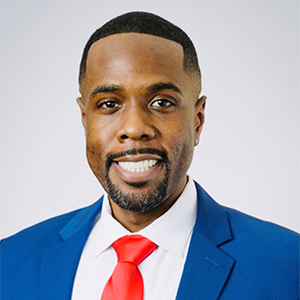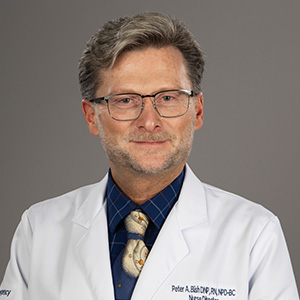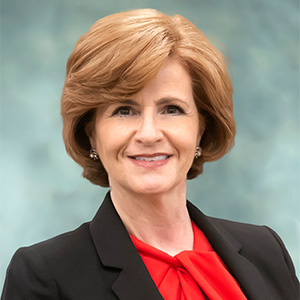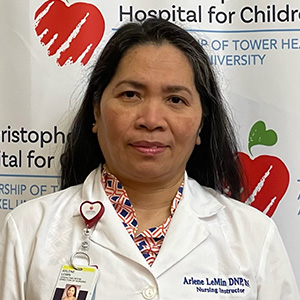La Salle University
La Salle’s School of Nursing and Health Sciences’ Doctor of Nursing Practice (DNP) program prepares students for the professional world.

Maurice Washington, DNP ‘23, MSN ‘13, returned to La Salle University for the School of Nursing and Health Sciences’ Doctor of Nursing Practice (DNP) program knowing it would support his professional role. How immediately that would be the case surprised even him.

Washington has a long history with La Salle, receiving his master’s degree in public health nursing and serving as a clinical adjunct professor. As the CEO of Haven Behavioral Health Hospital in Philadelphia, he recognized a DNP degree as an avenue to advance his career and sharpen his knowledge base.
For his DNP project, Dr. Washington developed an evidence-based educational intervention to reduce falls by geriatric patients with psychiatric disorders. He refined existing training with current research, formalized sessions with questionnaires for staff, and carved out time to discuss challenges with employees one-on-one.
Immediately, he saw the number of falls reduced.
“It was almost like, wow, I’m really taking what I’m learning at the doctoral degree level and I’m affecting change within my organization,” Washington said. “It was great for me to see that and great for my staff to see that.”
Washington’s work epitomizes what La Salle’s DNP program provides. The Doctor of Nursing Practice degree stresses the clinical side of the profession, turning research into actionable plans. It’s applicable for a wide range of career stages, for nurses in executive positions or those with more bedside experience, some early in their careers or others who are decades in. Washington is one of the earlier ones, starting as an ER trauma nurse in 2007 before finding a passion in mental health that he followed to executive positions and broader systems thinking.
“Back in 2010, Dean Emerita, Dr. Zane Wolf, had the vision to launch the La Salle Doctor of Nursing Practice Program in response to the call for health care improvement and innovation. The emphasis has been on a practice-focused doctorate with a strong clinical component in health care environments, providing opportunities for expert knowledge and skill development through completion of courses, clinical hours, and a DNP Project.
We are very proud of the path that our graduates have pursued, using the tools and experiences gained as part of their education. Our program is richer because of them,” said School of Nursing and Health Sciences dean Kathleen Czekanski, Ph.D., R.N.

The trend of nurses as lifelong learners extends no matter how long they’ve been in the field. Peter Bish, DNP ’21, has spent 37 years with Virtua Health in South Jersey–in the emergency department, first as a nurse educator, and as the nursing director for the last eight years. He’s one of many DNP students to have worked as an educator, and the program allowed him to blend those career aspects.
His DNP project hit on a knowledge gap he’s experienced, looking to implement an orientation and support system for novice ER nurse directors. Bish describes a “passion for education” that melds with his performing arts background. His project forced him to look far in the field for strategies he could integrate.
“In my head, I know what I’m trying to say, but the faculty challenged me to make sure I was communicating effectively,” Bish said. “I found all the faculty had different attributes to really inspire me to think in different directions.”
The DNP program’s focus on leadership and collaboration creates an exchange of expertise among professionals in each cohort. The clinical and didactic experience on both sides of the student-teacher divide made it feel to Washington, “like we were peers and colleagues, not so much instructor and student.”

Different professional pathways allow cohort members access to varied perspectives. Gina Marone, DNP ’22, RN, NEA-BC, the chief nursing officer and vice president of Jefferson Health, Einstein and someone who’s worked in leadership positions for the last two decades, interprets class material through the lens of an executive while seeing how seasoned bedside nurses approach the same challenge.
“I really enjoyed hearing things from the front-line perspective,” Marone said. “Not only from what I hear in my organization but the students who come from different organizations who really added a unique and different flavor to what we were discussing.”
In her leadership position, Marrone is constantly seeking evidence-based best practices to implement. Both the DNP coursework and the shared experiences of peers in her cohort offered that. As one of many students in the DNP program with advanced teaching experience, she felt she was, “treated as a colleague,” by faculty while on the other side of the teaching experience.

Arlene LeMin, DNP ’23, is used to assimilating different viewpoints. Born and educated in the Philippines, LeMin worked for six years in Dubai, seven in Ireland, then 18 with the University of Pennsylvania, where she became the clinical coordinator for cardiothoracic surgery then ten years with Nemours Children’s Health, where she served as the nurse manager for pediatric cardiothoracic surgery. She’s currently the director of nursing in perioperative services for St. Christopher’s Hospital for Children in Philadelphia.
She spoke in April 2024 during her 30th surgical mission trip, a weeklong voyage with Gift of Life International to Georgetown, Guyana, with a team of 20 surgeons, nurses and technicians from around the world who will perform more than a dozen open-heart procedures.
Her DNP project put to paper practices she’s used on those trips. Despite being discouraged by the paucity of evidence, she persisted in finding the scholarly support behind what she and others do in the field, developing protocols to unite a team of traveling practitioners with health staff in the country they’re visiting.
“You cannot just say, ‘oh this is the way things need to be done because this is the way I’ve been doing things,’” she says. “You have to show evidence-based practices. … I took that in a positive way because even though I was struggling, I was like, oh I can use my years of education, my years of expertise, and my years of experience so that I can come up with that.”
Differing perspectives is one of the DNP program’s benefits. While faculty introduce students to new information, their peers do the same with their outlooks on the challenges they all share.
“Hearing their perspectives on some of the problems we were discussing and seeing how they work through their projects individually and troubleshooting, it gave me a lot of ideas and helped mentor me to be a better leader,” Washington says. “You’re problem-solving with people who deal with the same issues you deal with on a day-to-day basis. It was great to hear that I wasn’t alone, and it was a space to be a vulnerable leader.”
-Matthew De George